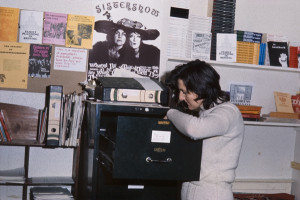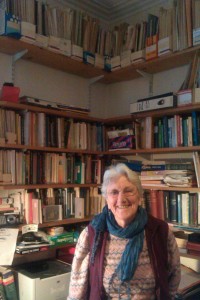As some of you may already know, we are extremely pleased to share the news that Feminist Archive South has been awarded over £50,000 by the Government Equalities Office as part of the Women’s Suffrage Centenary Grant Scheme for our 3 strand project Hatpins to Hashtags.
Read more about the project in the blog post below this one.
Feminist Archive South would like to invite you to a volunteer meeting to discuss the project on Tuesday 5th June, 7-9pm in the Associates Space at Spike Island.
Please come to the front doors at Spike and one of the FAS team will be there to let you in (the Associates space is upstairs and you need a pass to get through the doors).
The meeting will be an opportunity to hear more about Hatpins to Hashtags, share your thoughts and ideas, collectively organise and join the network of people working on the project.
Hatpins to Hashtags aims to increase knowledge of UK democracy and contribute to greater gender parity in local and national politics through three interlinked project strands: digital engagement, educational workshops and a touring exhibition. These events will celebrate the historical legacy of suffrage and the WLM and bring untold feminist narratives to light. They will also work to engage groups underrepresented in politics and civic life, particularly LGBT+ people, those from lower-socio-economic backgrounds, and those living in rural isolation, with caring responsibilities or homebound due to a disability.
If you plan to attend, drop an email to [email protected] so we know how many people to expect — and please share this email far and wide with anyone you think may be interested!
If you have any access needs, please do not hesitate to contact us. Spike Island has disabled access throughout the building and you can find a statement about accessibility on their website. If you can’t make the meeting, don’t worry — we will be organising more soon and please feel free to get in touch with any thoughts in the meantime or suggestions on the most accessible times of the day/week we can hold meetings.
Once again, we’d like to say a really big thank you to all of the brilliant volunteers who have been coming to the workshops and giving their time to digitising our collection of 1000 posters.
OTHER EVENTS COMING UP….
There are a few spaces left on the digital archiving poster workshops TOMORROW, 16th May and two more on 20th June and 18th July from 2-5pm at Special Collections in the Arts and Social Sciences Library, University of Bristol (accessible). Please email [email protected] to sign up for a workshop.
Also:
Tuesday 5th June: Translating Latin American Feminisms Workshop
A workshop exploring feminist translation strategies and the rich and varied collection of Latin American feminist magazines, posters and pamphlets. Participants will be invited to translate from Spanish and/or Portuguese to English. Led by Ellie O’Connell and Dr Katie Brown.
If you would like to write for our blog get in touch via email, Facebook or Twitter.



